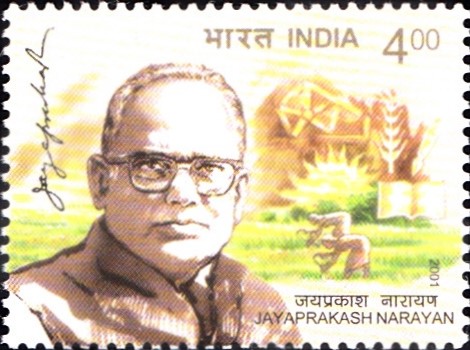
Jayaprakash Narayan 2001
A commemorative postage stamp on the Birth Anniversary of Lok Nayak Jaiprakash Narain (JP), led “total revolution“, a mid-1970s opposition against then Prime Minister Indira Gandhi :

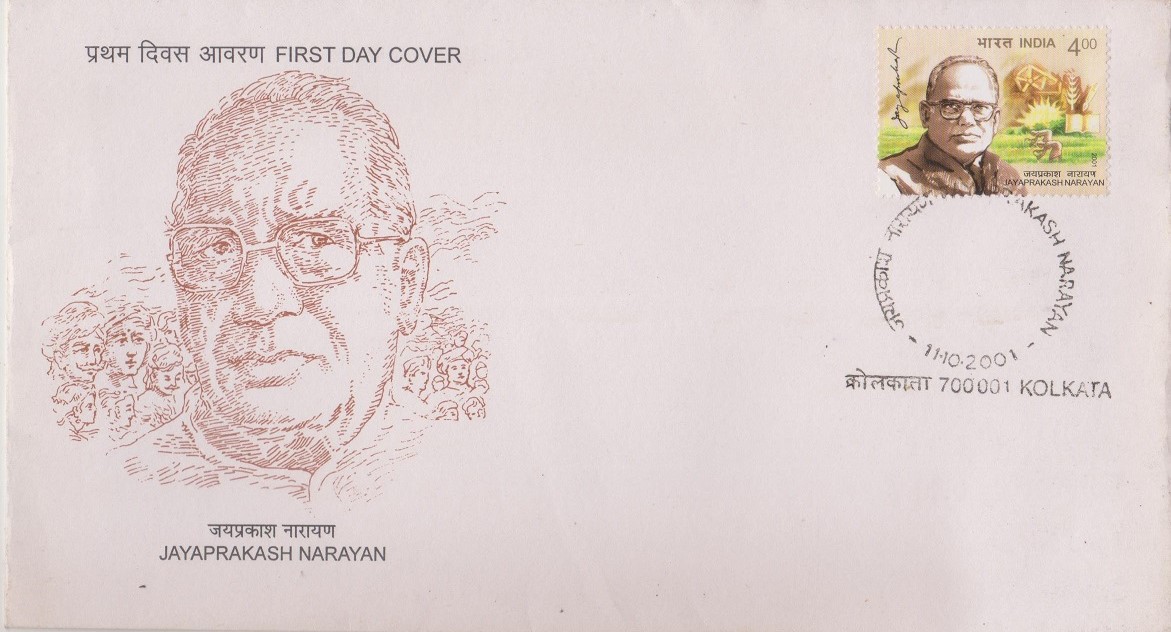 Issued by India
Issued by India
Issued on Oct 11, 2001
Issued for : The Department of Posts is happy to release a commemorative postage stamp honouring Jayaprakash Narayan.
Credits :
Stamp & FDC : Sankha Samanta
Cancellation : Alka Sharma
Type : Stamp, Mint Condition
Colour : Four Colour
Denomination : 400 Paise
Overall size : 2.90 x 3.91 cms.
Printing Size : 2.90 x 3.91 cms.
Perforation : 13 x 13
Paper : Imported Unwatermarked stamp paper
Stamps Printed : 0.4 million
Number per issue sheet : 40
Printing Process : Photo Offset
Printer : Madras Security Printers Ltd.
Name : Jayprakash Narayan Srivastava (JP)
Born on Oct 11, 1902 at Sitabdiara, Bengal Presidency, British India [Now in Saran, Bihar, India]
Died on Oct 8, 1979 at Patna, Bihar, India
About :
- One of the most influential political figures of the 20th Century India, Jayaprakash Narayan (1902-1979) combined in his public life the selflessness of a sage and the acumen of a political strategist.
- J.P., as he was popularly known, hailed from the Sitabdiara village in Bihar. While a student at the Patna College he threw away his text books in disgust after the Rowlatt Act and Jalianwala Bagh massacre and refused to pursue a British-style education. Later, in 1922, he sailed for the United States and joined the University at Berkeley (California). He had to work hard to pay for his needs. From Berkeley he moved to Iowa State University and later to the Universities of Wisconsin and Ohio. During his seven years’ stay in America, he drank deep at the fountain of Dialectical Materialism to become a thorough Marxist.
- He had already married Shrimati Prabhavati in 1920. She was adopted as daughter by Gandhiji and stayed in the ashram at Wardha during the absence of Jayaprakash. On his return from America, he plunged headlong into the freedom struggle with the blessings of Gandhiji. Later he set up the Congress Socialist Party with Acharaya Narendra Dev as President and himself as Secretary, to promote Socialist ideals in the country. Tested in the fires of the British jails where he spent eight years, he emerged with his convictions unscathed. J.P. played an inspiring role during the Quit India Movement which started in 1942. His escapades and underground activities on the face of an intensive manhunt launched by the British administrative machinery forms a thrilling chapter of India‘s freedom struggle.
- After Gandhiji‘s death in 1948, Jayaprakash Narayan formed an independent Socialist Party. However in 1954, he made the dramatic announcement of total withdrawal from politics to join Vinoba Bhave‘s Bhoodan Movement. He went on to champion diverse causes like rural upliftment and reform of the Chambal dacoits.
- By 1974 he started moving back to active politics. The contemporary ills of the Indian polity like the destruction of civil liberties, problems of unemployment and inflation and the faltering electoral process worried him. He set rise to a movement of “total revolution“, which culminated in establishment of the first non-Congress government of the country in 1977.
- J.P. was a gifted theoretician and a forceful writer who produced thought provoking works on freedom, socialism and democracy. His important works are : Why Socialism (1936), Towards Struggle (1946), In the Lahore Fort (1970), A Plea for the Reconstruction of Indian Polity (1959), From Socialism to Sarvodaya (1959) and Swaraj for the People (1961).


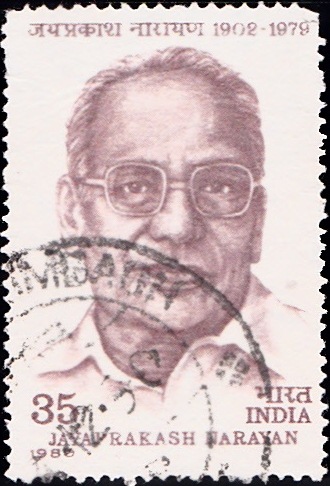
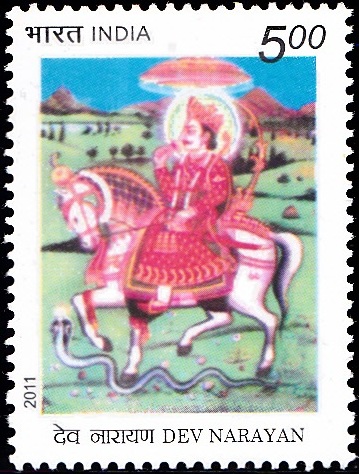
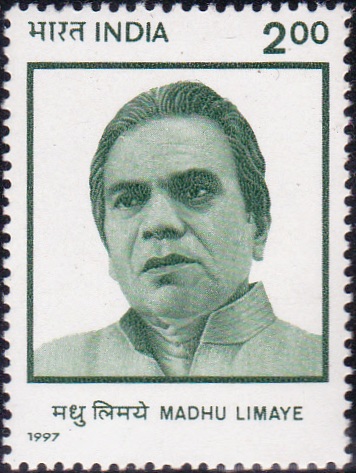
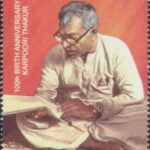
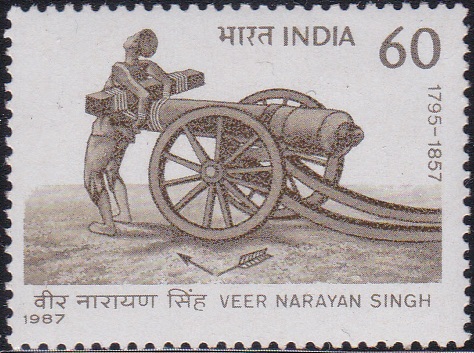
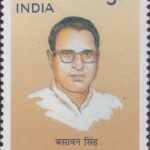
[…] came in contact with stalwarts like Mahatma Gandhi, Pt. Jawahar Lal Nehru, Shri Vallabh Bhai Patel, Shri Jaiprakash Narayan and others, he also came to be a close associate of leaders like Smt. Indira Gandhi, Shri Morarji […]
[…] Shri Raj Narain was a man of masses. He strove hard for political freedom, economic justice, social equality and cultural advancement of the people and was therefore known as ‘Lokbandhu’ rather than ‘Loknayak’. […]
[…] struggle, he was closely associated with such stalwarts like Yogendra Shukla, Baikunth Shukla and Jai Prakash Narain. He was involved in several conspiracies and works of sabotage aimed at paralyzing the British […]
[…] became CM Twice, 1970-1971 and 1977 and became Deputy CM in 1967. He was politically influenced by Loknayak Jaiprakash Narayan and Dr. Ram Manohar Lohia. His life and career were marked by a commitment to empower the […]
[…] 26.11.1927 to 04.07.1937) and also as President AIRF (from 25.11.1944 to 05.05.1946), Lok Nayak Jayaprakash Narain as President AIRF (from 07.06.1947 to 27.06.1953), Late Shri Priya Gupta as General Secretary AIRF […]